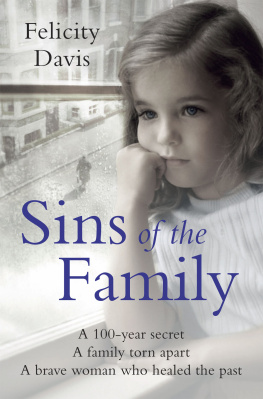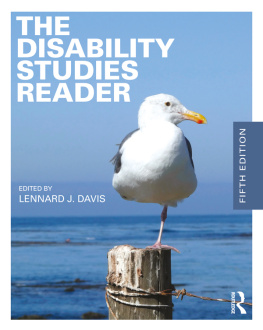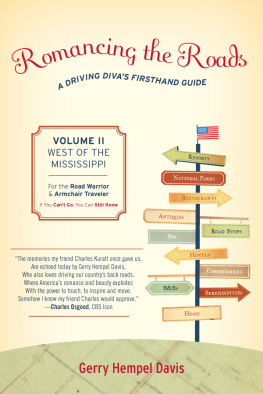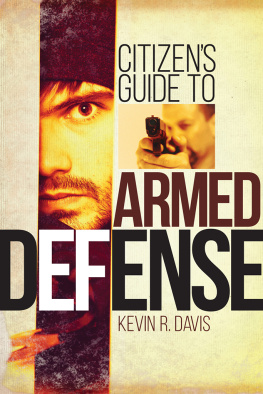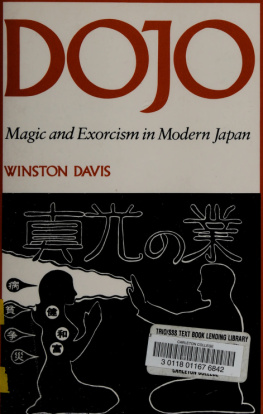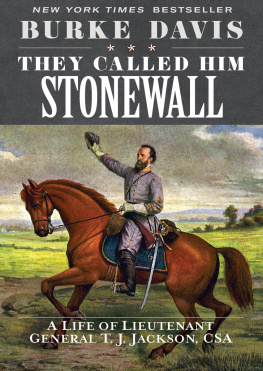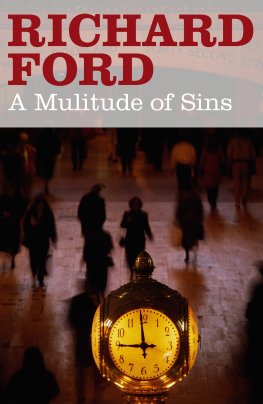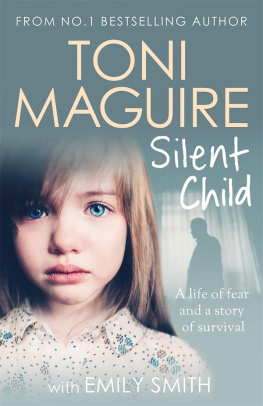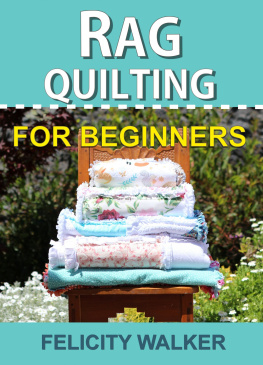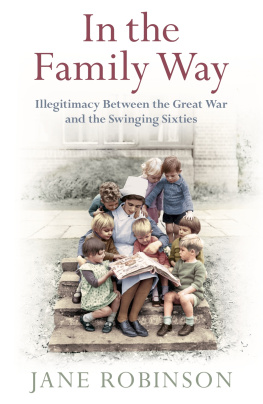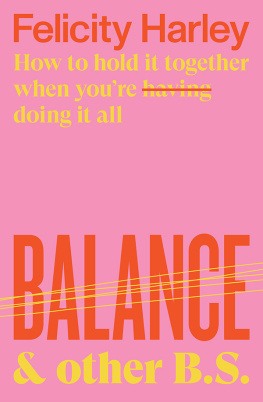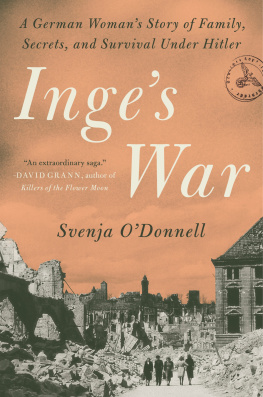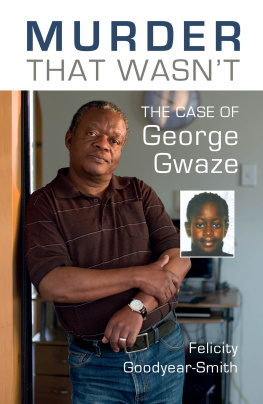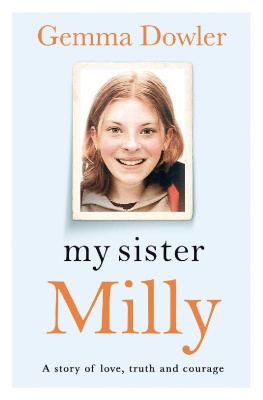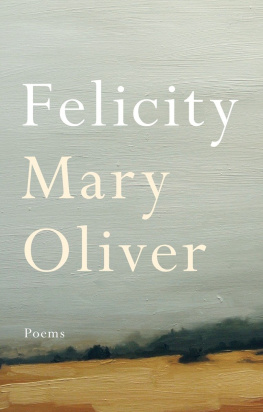SINS
OF THE
FAMILY
FELICITY DAVIS
PAN BOOKS
To five strong women:
Hannah, Emily, Elsie, Marjorie and Felicity.
Note to Reader
The whole experience of researching my family history and putting pen to paper has had an enormous impact on who I am as a person, and how I want to live my life. To have answers to those ultimate questions that whirl around in our hearts and minds, especially when moving on from abuse, allows us to develop our sense of worth and also our self-identity. Fortunately for me, Sins of the Family gave me the opportunity to unlock those sinister secrets that had been locked away for so long and also to file them away in my own personal history. I am fortunate; I found the answers that I had been searching for and I know that many of my readers would also like to delve into their family history in order to understand what has happened to them.
From the first telling of my story, I have had letters from readers all around the world, either wanting to share their story or just to ask for advice as to where to start. What I would say to anyone who is looking for answers is go out and find them. My starting point was to gather anecdotal stories from my family and then, as we Yorkshire folk say, hard slog through the many avenues that those clues lead us down. Be prepared for the mixed bag of emotions that you will feel as you meet and greet your long-lost ancestors of the past. I have gone through heartbreak, and still do when I think of the pain that has swept across five generations of my family, but I also feel a greater sense of well-being because I have unlocked the secrets of time. There are risks, and the journey may be dark and painful, but I can tell you here and now, hand on heart, the experience will be life-changing.
My final piece of advice comes from the New Testament reading which I had found on the lectern of the church where my Gran and Granddad got married all those years ago There is a time for everything and a season for every activity under heaven words which seemed to give me the permission I was waiting for, to go and seek the truth. So as I close my note to you, my reader, I strongly believe that there is a time for everything and possibly that time for you is now.
I wish you well in your search.
Felicity Davis, 2016
Prologue
DO IT AGAIN
Thats not how you walk across a room, Gran snapped at me. Do it properly!
Obediently I turned, went back to the living-room door and set off again. Over the rug, past Gran on the sofa, her tiny frame upright, her implacable grey eyes fixed on me. Almost to my bedroom door, and safety.
Stop! Do it again, and get it right this time!
Back to the living-room door. I took a deep breath and started walking. I only managed a couple of steps.
No, no! Do it again.
I set off again, over the rug, past the sofa. I hate you, I hate you. Youre a bad woman.
Gran hissed and my heart jumped into my throat. I stopped and glanced sideways at her, her body rigid, the tip of her tongue sticking out between her yellowing false teeth, her lips curled back. My hands were trembling. Dont hit me.
What am I doing wrong, Gran? I asked pleadingly. I just want to get it right what do I do?
Do it again!
I was about seven years old when this torturous routine started, and it lasted as long as I lived with Gran. Sometimes I would avoid eye contact with her to see if that made a difference; sometimes Id try a cheery, upfront Hello, Gran! Id walk briskly, or softly, or Id stop as I came through the door and look at her and say, What shall I do, Gran?
Nothing made the blindest bit of difference. Id have my hand on the doorknob ready to make my escape and she would suddenly snap, You didnt do that right. Go back and do it again.
Id retrace my steps across the room to the door Id come in by. Id repeat my walk past her across the room and do it again, and again, and again. It wasnt the worst thing she did to me, but the weary inevitability of this inescapable little drama which I never understood, but which oppressed me with its misery typified my childhood. I was trapped in Grans world, along with my granddad and my unmarried mother, in a little prefab bungalow in Scarborough, completely at her mercy.
Your gran has had a hard life, my granddad would often tell me. She hardly knew her own mother, you know. She did something terrible and had to go to prison, and your gran never saw her again.
What did she do?
Oh, it was a long time ago. But she never knew what it was to have a mother. And then she had an accident that damaged her brain.
I understood that I shouldnt probe into the detail of the story that lay behind these intimations, and the brain injury, like other such excuses, was never mentioned again. Because I loved my granddad, I accepted his underlying message that it was Gran who was the victim rather than me. In any case, most of my energy was focused on getting through endless, miserable days of trying to foresee where the next attack would come from. What unreasonable, unpredictable excuse would Gran come up with next to cause grief and hurt and dish out abuse?
I never felt a grain of love or empathy for Gran and I broke free from her control as soon as I could. But it wasnt until I was fifty and had finally made something of my life that I recognized that I hadnt ever escaped her completely. The scars caused by my fractured childhood had never totally healed, which meant that at a time when I should have been feeling proud of myself and my achievements, I felt hollow and incomplete. I realized that to be totally free, I needed to understand why Gran had behaved the way she did.
So in the summer of 2007, I sat in the library in Barnsley, where various family documents suggested Grans family had come from, looping reel after reel of tape on to microfiche spools, and telling myself that even if there was some truth in my granddads story, it was very unlikely that there would be much trace of it in the official records.
History, after all, is for the famous. Its only the descendants of kings and queens, warriors and politicians, the exceptionally bad or the exceptionally beautiful who can walk into a library and hear authentic echoes of long-dead ancestors talking to them across the centuries. Someone like me could only expect to find a name scrawled in a copperplate hand by a clergyman or government official noting a marriage, birth or death, or a census record giving an occupation and address.
My ancestors were no more famous than me, and I began to realize, as I looked through the records and found them living a dozen to a house, that they were a lot less well off. I wondered why on earth I was bothering. I wasnt going to find any hard evidence of their emotional lives, anything that would flesh out their characters and give me the answers I was looking for.
But then the words of my great-great-grandmother, Hannah, leapt out at me from a page of the Barnsley Chronicle. She was speaking to a reporter in 1903.
Eh, mister, Ive had a hard life, she said wearily. Of all the trouble I have had, this has been the hardest.
Tears pricked in my eyes as I read Hannahs story. This I had not expected.
Chapter One
FELICITY
I hated the approach of nightfall. I hated the dark. As teatime came and went, as the pots were cleared away, my granddad would get ready for his job as a doorman at the local Conservative Club, where he was on duty from early evening until the small hours of the morning, and Id begin to feel the first flutter of fear rippling through my stomach.
My mother also had somewhere else to go after tea. Every evening without fail she went to see my dad at least, thats what she said. She never returned until long after my seven oclock bedtime. I wanted to throw my arms around her as she headed for the door and beg her, Dont go, dont leave me alone with Gran. But I didnt do it because I feared that it would lead to something worse. I knew that Mum, gentle as she was and incapable of doing anything to hurt me physically, would never respond in the way I wanted her to. She would never go against Gran. Begging for help in front of Gran was therefore out of the question, because I would only suffer even more than usual once we were alone again.
Next page
